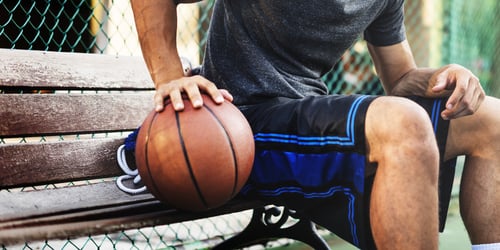Painkillers are a Risk for Teenage Athletes

Today, the story is sadly common about an athlete who is injured, gets treated, and becomes addicted to drugs. Sports are a highly celebrated part of teenagers' lives. Participating in group sports has numerous mental health and physical health benefits. Sports teach teenagers good sportsmanship, team work, discipline, dedication, hard work, routine, and more. Teens are happier when they're interacting with their peers face to face and doing something active as opposed to when they are alone at home on their digital devices. For some teens, sports is a way of life and it is also a career goal. Playing a sport and being an athlete can become a matter of income and a future for teens in high school. Many teens start receiving sponsorships and endorsements in high school with promises of admittance to colleges or even professional sports organizations after graduation. Teens who train hard and practice their sports religiously push their bodies to the limits. These teens are in incredible shape which sets them up for a lifetime of health and wellness. That is, until they get injured.
A major injury for a teen is more than physical pain. Injuries can be treated and repaired, however, increasingly teens are severely damaging their bodies with career ending injuries. One bad injury can mean losing a lifelong passion, a dream, a future, and a sense of purpose in life. When a teen endures an injury they heart in their mind and their spirit, in addition to their body. The pain is immense, frustrating, and overwhelming. Teens look for relief wherever they can.
Unfortunately, many teens are prescribed opioid painkillers as part of their pain management. Percocet, Vicodin, and OxyContin are popular brand names prescribed to high school athletes who are injured in their sports. These medications are narcotic opioid painkillers and are highly addictive. Opioid painkillers are overprescribed and under monitored. Doctors have become too willing to hand out these magical medications because of their strong ability to remove pain. Sadly, these addictive medications can cause a much larger and life threatening problem. In 2016 more than 60,000 people died of opioid overdose. More lives were claimed in two years of the opioid epidemic than American soldiers in the Vietnam War.
Abuse of these painkillers is not required to cause the beginning of an addiction. For the developing and vulnerable teenage brain, just a normal prescription can cause sensations of euphoria, which not only provide pain relief, but a relief from all of the emotional pain and stress which accompanies a high school sports industry. If a teen does decide to abuse opioid painkillers, an addiction can develop quickly.
The story is common but it does not have to be repeated. Injured high school athletes can opt out of opioid treatment and choose a prescription strength ibuprofen or alternative non narcotic medicine. Physical therapy, massage, acupuncture, and chiropractic work can also help relieve pain as well as rehab muscles to be active again.
Stonewater Adolescent Recovery Center offers longterm residential care to adolescent and teenage boys struggling with addiction. Our foundation building, life cleansing program bring the family together again in mind, body, and spirit, for total healing. Call us today for information on our clinical programs and academic support system: 1-662-598-4214

.jpg)

